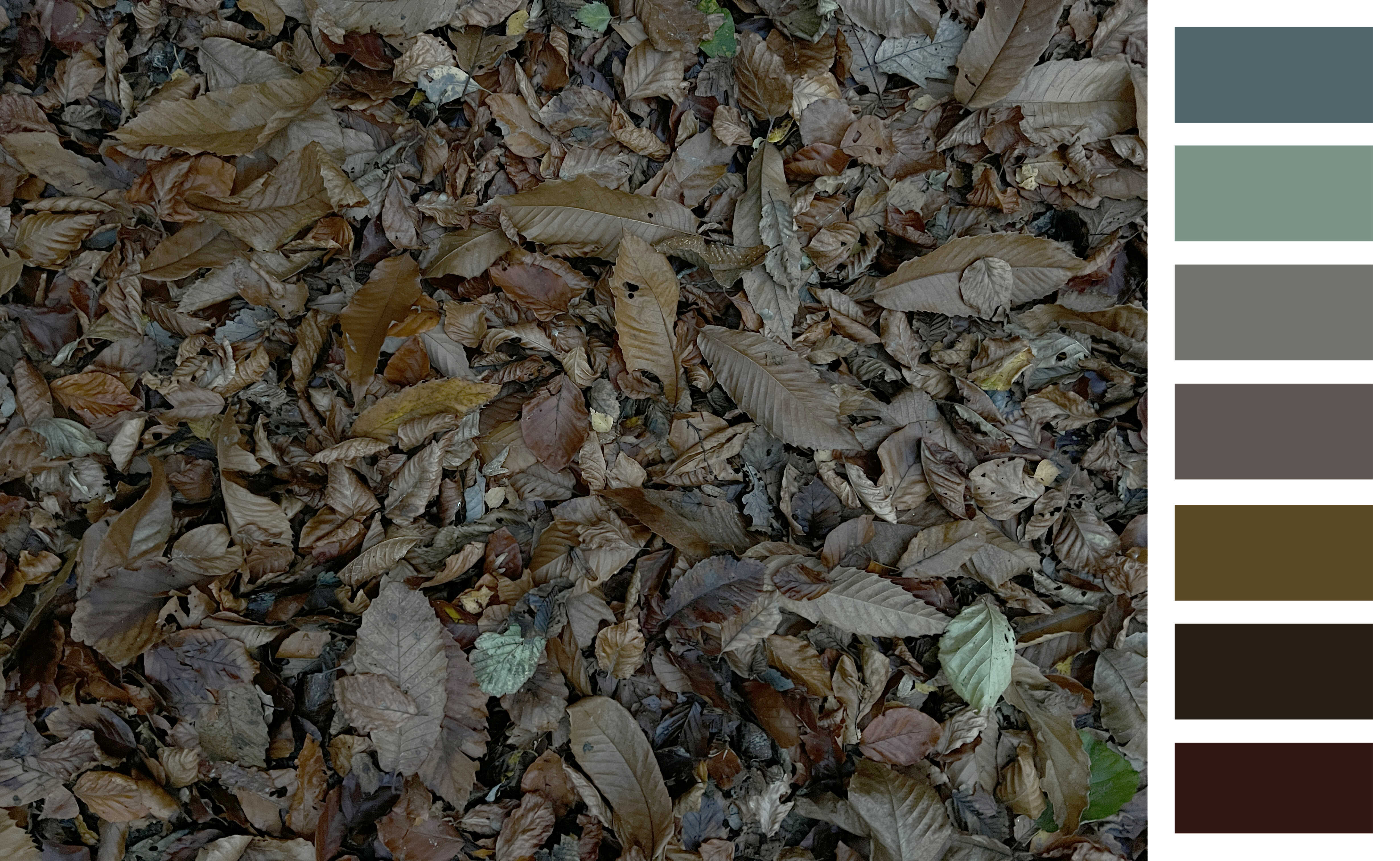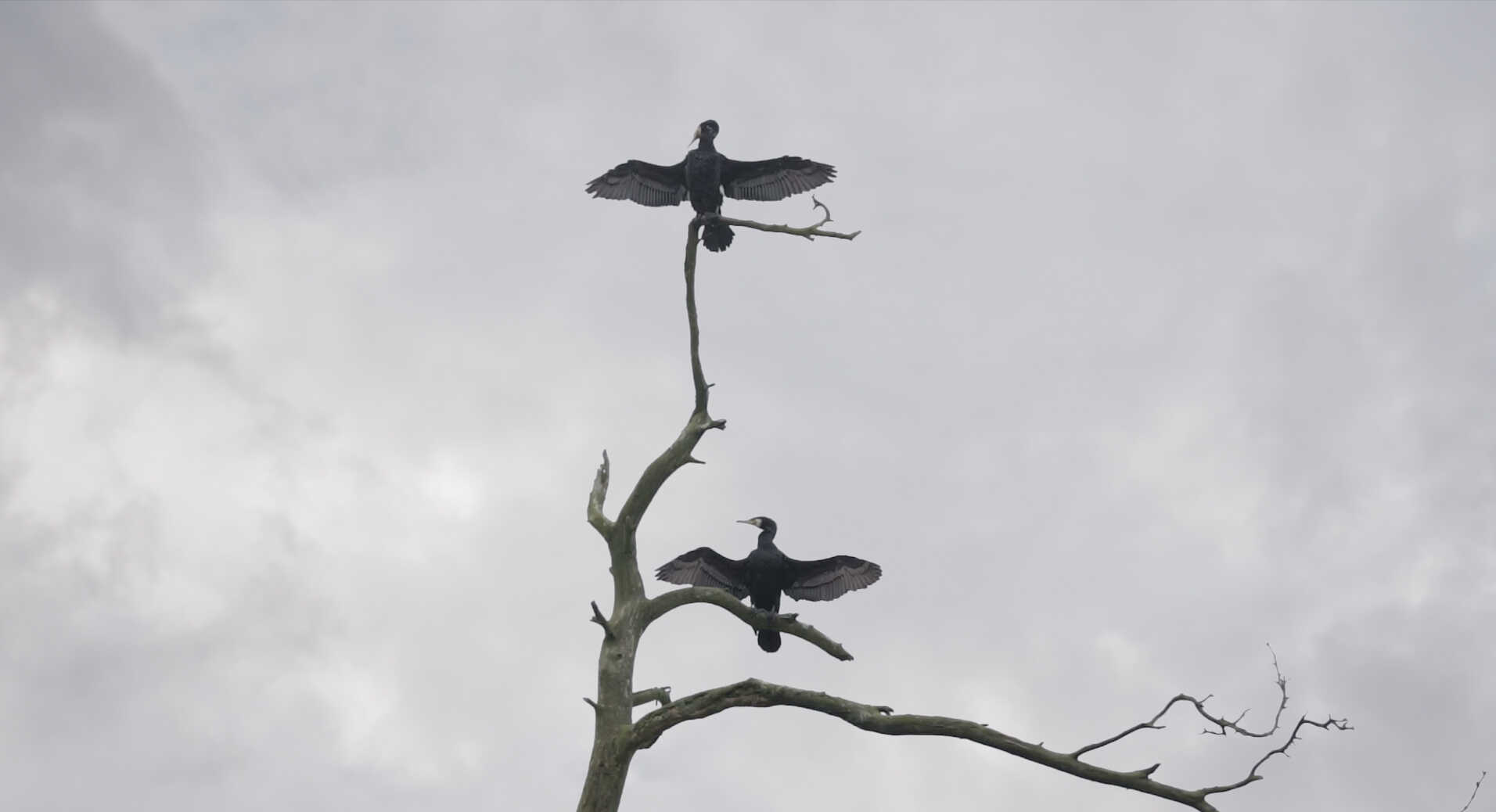COOP ~ FOREST IS LONG-TERM from Day to Day
Seminar 3: 24 - 26 April 2024
The Confluence time will be dedicated to field study of Essaouira and its surroundings, to recognise environmental relationships that are specific to the place. At the same time critically reflecting on own tools of inquiry and optics of sensing the place while discussing the possible themes for the collaborative work in preparation for the Summit.
“Biodiversity of functions” concept will be investigated in order to relate to variety of ways to manage forests through community consensus that allows complexity and continuity of ecosystems and its biodiversity in Morocco. Reading Essaouira through timber might allow the Study Group to reflect and recognise specific practices related to argan and other forest products. The study will focus on collecting evidence, getting to know Essaouira and its surroundings while focusing on specific aspects to recognise local practices and experiences and consider how this place relates through material flows, trade and visitors to other places, is part of wider circulation of ideas and resources. A possible visit to/surroundings of Phosphorite processing plant producing phosphoric acid and fertilizers for global exports will provide a context and a link to discourses of extractivist relation to locality.
Amongst the activities tutors will proceed with short one to one meetings with students and Midterm evaluations.
Wednesday 24 April:
MORNING
Group work / Sharing AUDIT process and reflections
AFTERNOON
Walking the city limits/perimeter/edges
Writing workshop - fictioning
EVENING
ATLAS workshop + JOINING Palestine teach-out: What is the Future of Art? initiated by COOP ~ Assembling Land: Rehearsals towards Place-making
"This year, the Palestinian Pavilion at the Venice Biennale takes the form of a manifesto, presented as an A3 Xerox pamphlet. Titled "What is the Future of Art?: A Manifesto Against the State of the World," this gesture calls for urgent action in response to the ongoing genocide in Gaza. It confronts the stark realities shielded by nation-state rhetoric and imperial power. Accompanied by poetry, the manifesto resonates with the themes of dismantling nation-states, reclaiming land, and restoring art and poetry as essential tools of resistance. The unpacking of this timely manifesto, invites participants to join with a selected poem about or relevant to the Palestinian struggle (e.g. Moving Towards Home by June Jordan).
Participants are invited to join with a poem on or relevant to Palestine."
Thursday 25 April:
MORNING
Larping session - Playing as characters
AFTERNOON
Visits to argan tree plantations, seed nurseries, cooperative and other local production sites. (TBC)
Experiential walk to understand the place - Material research
EVENING
Visits and reflections on possible Summit locations
Friday 26 April:
MORNING and AFTERNOON
A visit to Prosphorite processing plant at Safi producing phosphoric acid and fertilizers for global exports (TBC)
EVENING
Game: leave time capsules for August return
Seminar 2: 5 - 8 March 2024
The session at the Performing Arts Forum will further look into the processes that are framing environmental relationships by traversing different ideologies from the past three hundred years in Europe that have defined forest administrative management and science while defining consecutive socio/political/technological relationships. The session will reflect on extractivist histories of ideas and technologies that initiated and formed tree plantations in Europe (before imposing them elsewhere), simplified and diminished bio-diverse habitats, and will trace some future scenarios drafted as responses to and driven by climate heating. The session will include online meetings with researcher Eglė Rindzevičiūtė on The Cold War Forests: The Politics of Scientific Prediction across the Iron Curtain, forest engineer Dr. Kathrin Streit on current forest test plantings project in Switzerland, and author and journalist Cal Flyn on her research for the book Islands of Abandonment, Life in the Post-Human Landscape.
The session will include group discussions of the individual AUDIT process, LIBRARY reflections, group exercises, ATLAS editing and continuation of research towards preparation for visiting the COOP Summit location, as well as an extended walk in the forests around Saint-Erme-Outre-et-Ramecourt.
Come prepared for the hike, dress accordingly, follow up on the suggested LIBRARY readings and AUDIT papers, as well as bring your ATLAS images printed as A5.
The municipal forests and state forests which surround the commune of Saint-Erme-Outre-et-Ramecourt are essential to the environment and local life. These wooded areas are also habitats for a variety of animal and plant species. The trails that go through these woods allow locals and visitors space for walks and longer hikes. Beyond their ecological role, the forests surrounding Saint-Erme-Outre-et-Ramecourt play an important role in protecting water quality and preventing flooding by regulating precipitation. They are also silent witnesses to local history and culture, offering a tangible link with the beginnings of the municipality.
001 Tuesday 5 March
Morning
Group work / Sharing AUDIT process and reflections
Afternoon
Walk in the forest around PAF
Evening
JoiningCOOP study group ~ Curating Positions for screening of IZKOR, slaves of memory 1990, a film by Eyal Sivan at media room
002 Wednesday 6 March
Morning
Talk and Q&A, via video link with Dr. Kathrin Streit (forest engineer at Forest Resources and Management, Swiss Federal Institute for Forest, Snow and Landscape Research WSL) https://www.wsl.ch/en/staff/streit/
Afternoon
ATLAS workshop
17:00 Talk and Q&A, via video link with Cal Flyn (author and journalist) on her research for the book Islands of Abandonment, Life in the Post-Human Landscape
Evening
Screening of The Time of Forests (Le Temps des forêts) by François-Xavier Drouet, 2018
As the symbol of authentic, preserved wild nature, forests are undergoing an unprecedented phase of industrialization in France.
Heavy mechanisation, monoculture, fertilisers and pesticides, loss of traditional know-how, forest management... all follow the intensive agricultural model at an accelerated rhythm.
“The Time of Forests” is a journey to the heart of industrial forestry and its alternatives. A living forest or a green desert, the choices of today will define tomorrow's landscape.
003 Thursday 7 March
Morning
Group work / Sharing of assigned readings’ results and reflections
Afternoon
15:00
Talk via video link by Dr. Eglė Rindzevičiūtė (researcher)
"The Cold War Forests: The Politics of Scientific Prediction across the Iron Curtain" and a workshop on forecasting and backcasting forest futures.
Evening
Discussions and reflections
Screening of related short films
004 Friday 8 March
Morning
Essaouira oriented AUDIT process
Towards COOP Summit, discussion and research
Group exercises
Afternoon
Towards COOP Summit, discussion and research
Group exercises
Evening
Towards COOP Summit, discussion and research
Group exercises
Seminar 1: 23 - 26 January 2024
The first session of the COOP study group Forest Is Long Term is formed as a multilayered introduction. During the four days in Nida the group will address the study trajectories, and develop approaches to the collaborative work structure of the course. Introduction and presentations of the practices and backgrounds of each participant in the “atlas mode” will reveal the already existing and potential relations and entanglements between individual practices present in the study group. The conversations will lead to setting up of infrastructure for the collaborative study process.
Against the backdrop of extended conversations and reflecting the context of the cultural landscape of the Neringa forest, the session will include screenings of films and meetings with filmmakers Rugilė Barzdžiukaitė, Dovydas Korba, and Mindaugas Survila. Together, the study group will visit sites in the forest around Juodkrantė featured in their past and current films to discuss research, filming and editing processes in their work.
The session will include longer hikes - bring with you warm, water and wind resistant clothes, boots, hat and gloves + thermos for hot tea.
Tuesday 23 January
Morning
Opening the COOP / shared space / introduction round
Afternoon (early departure / lunch to go)
Vecekrugo kopa section walk – sea to lagoon
Evening
Introduction to the LIBRARY
Wednesday 24 January
Morning
Introduction to LIBRARY, ATLAS, AUDIT – the three pillars of the collaborative study and work process
Afternoon
ATLAS workshop
Evening
Film Screenings:
- Sengirė, The Ancient Woods directed by Mindaugas Survila
Filmed in one of the last remaining patches of old-growth forest in Lithuania, The Ancient Woods is a place where the boundaries of time melt and everything that exists neither withers nor ages but ‘grows into’ eternity. This poetic and atypical nature film takes its viewers on an endless journey – from forest thickets to wolf caves and up to a black stork’s nest, and then deep into the water to an underwater forest before returning to the human beings inhabiting the edge of the woodland. There’s no commentary, only the rich, almost palpable sounds of the forest and the magical situations captured by the camera.
- Rūgštus miškas, Acid Forest directed by Rugilė Barzdžiukaitė, co-author and producer: Dovydas Korba
Can you imagine a tourist attraction where people come to see a dead forest? Where they are not only observers, but also the ones being observed and heard by black cormorant birds? Acid Forest is an ironic creative documentary about an unusual tourist attraction: dying, leafless trees overtaken by thousands of cormorants, impacting the ancient forest with their acid-fortified faeces and causing visitors to reflect on the relationship between humans and nature. ‘Apart from the main storyline, I kept my focus on playful dialogues, illustrating how a range of political questions, historical narratives, migration vectors, and cinematic experiences intervene into the human projections of nature. I hope this helped the environmental paradox of Acid Forest to become a metaphor for the surreal world we live in,’ says the director of the film.
Thursday 25 January:
Morning
Acid Forest and Old Growth forest walk with Rugilė Barzdžiukaitė, Dovydas Korba, and Mindaugas Survila
Afternoon
Discussion with Rugilė Barzdžiukaitė, Dovydas Korba, and Mindaugas Survila
Evening
AUDIT – Reflections, observations
Friday 26 January
Morning
Towards COOP Summit, discussion and research
Afternoon
Layout of the study group’s work structure, distribution of tasks and setting the collaborative work infrastructure
Evening
AUDIT – Reflections, observations


